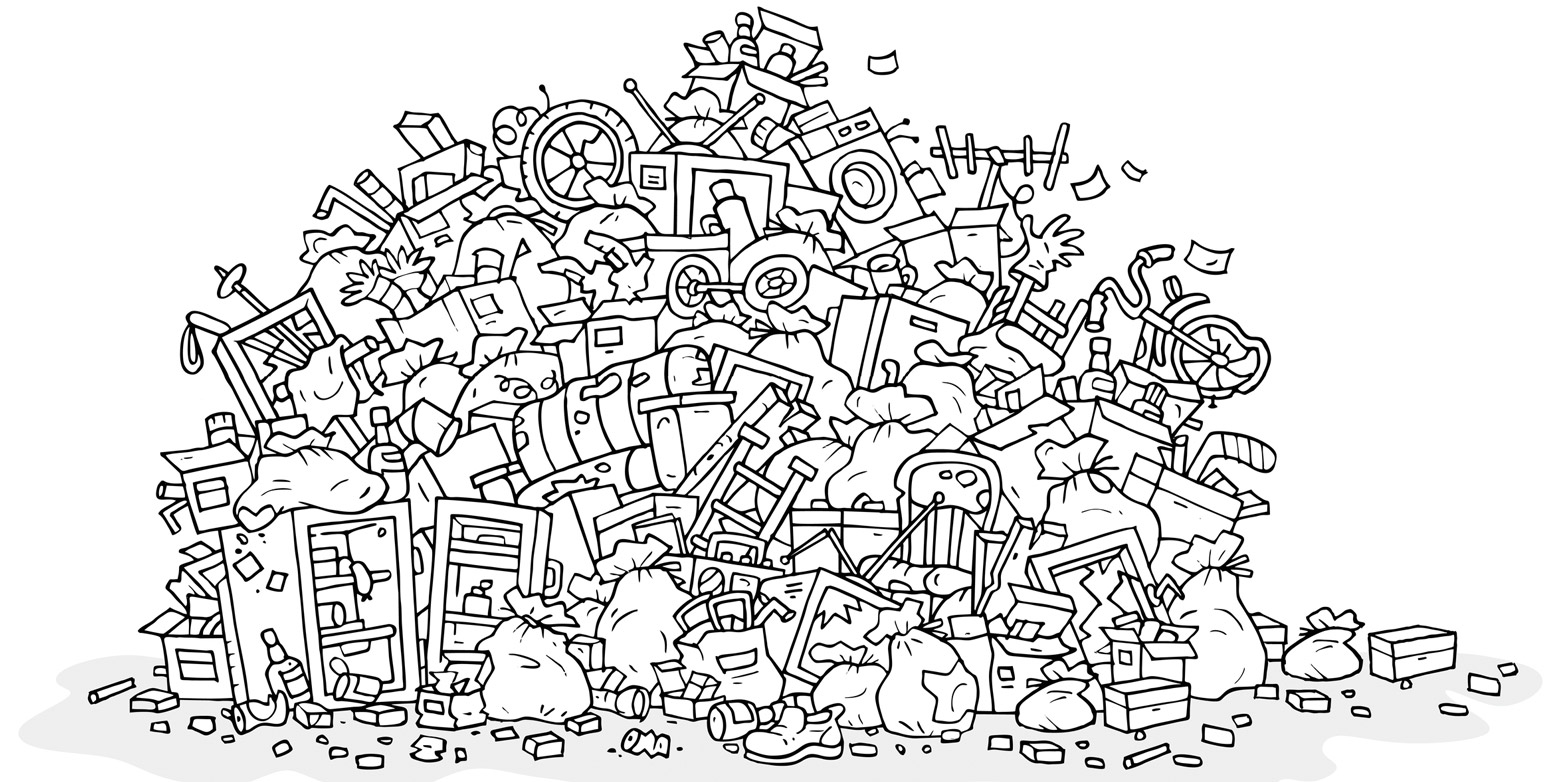Warning on affluence
Lorenz Keysser believes that in order to overcome ecological crises, we must recognise affluence as a main driver and fundamentally reconsider our economy and lifestyle.

A new mobile phone here, a new dress there, heading on holiday by SUV or further afield by plane, and – for those who can afford it – a big house. In short: we consume as much as we can. This is a good thing – after all, consumption drives the economy and the economy must ultimately grow. Affluence grows alongside it. This is seen as something worth striving for and is deeply rooted in our society. It brings you respect, buying power and influence. So why am I warning against it?

We already know the answer: we’re living in too much style. The problem is that our living standards are destroying our basis of life. From an ecological perspective, we can’t afford to be rich. That is the key outcome of our perspective recently published in the journal Nature Communications entitled “external page Scientists’ warning on affluence”.1
Consumption leads to ecological crises
We analysed the scientific discussion on the relationship between wealth, economy and environment, and came to the following conclusion: the economic growth imperative and the associated overconsumption are the main drivers of today’s environmental crises. All the small and large products increasingly consumed by growing numbers of people carry weight: they consume land, water and raw materials, destroy habitats and warm the planet.
In fact, the world's wealthiest 10 percent (which includes those with an annual per capita income of CHF 13,000 or above) cause between 25 percent and 43 percent of ecological damage, while the poorer half of the world is only responsible for 12 percent to 27 percent.2 The gap is particularly big when it comes to climate: the richest 0.54 percent (about 40 million people) cause almost 14 percent of all consumption-based CO2 emissions.3
Green growth is a myth
Many countries see a solution through clean technologies. Switzerland too is promoting “green growth”, which aims to protect the climate and natural resources by “decoupling” the economy from harmful effects.4 In our article, however, we show that there is no empirical basis for the belief that this required “decoupling” is actually taking place. From a global perspective, all technological advances so far have been offset, primarily by growing economies and less so by population growth5. The affluence of the world has grown, and with it, environmental damage continues to increase. We believe that the idea that this will change as fundamentally as required in future is highly unlikely.6
Conversely, this means that if we want to solve existential problems such as climate change and species extinction, we cannot rely on technology alone. In addition to technological developments, it is essential to decrease the consumption levels of richer societies and develop a simpler, more frugal lifestyle.6, 7
This is easier said than done. In our article, we show that the biggest obstacle to change is the systemic pressure toward growth8: our national economies are geared towards rising returns. Markets and companies promote overconsumption. Status goods shape social norms. The affluent classes support this system by shaping politics in their favour. This drives a constant growth spiral9 that prevents the necessary change.
What is really important to us
But how can we reduce the overwhelming power of consumption? We can certainly try to change our lifestyles. However, I believe this is not just the duty of individuals – structural (and cultural) change is also required: we must find sustainable economic paradigms.
“We must hold an in-depth discussion on what is right for us as a society and the standards on which we want to base our economy and way of life.”Lorenz Keysser
The approaches described in the article put the well-being of people and ecosystems above profit and material affluence. The research field of the post-growth economy investigates how a world would function without growth (see also this blog post). Characteristics of such a world may include more local production, cooperative forms of business, a greater people’s voice, guaranteed income, reduced working hours, ecological taxes, sufficiency and closed material cycles.10 On these issues, I believe that still too little research is being carried out, both elsewhere and at ETH.
We must hold an in-depth discussion on what is right for us as a society and the standards on which we want to base our economy and way of life. A starting point could be the realisation that the material affluence we have been striving for may not be quite so desirable.
References
1 Wiedmann T, Lenzen M, Keysser L, Steinberger J. external page Scientists’ warning on affluence. Nat Commun 11, 3107 (2020). For more scientists' warnings see external page Scientistswarnings.org
2 Teixidó-Figueras, J., Steinberger, J.K., Krausmann, F., Haberl, H., Wiedmann, T., Peters, G.P., Duro, J.A., Kastner, T., 2016. external page International inequality of environmental pressures: Decomposition and comparative analysis. Ecological Indicators 62, 163–173.
3 Otto, I.M., Kim, K.M., Dubrovsky, N., Lucht, W., 2019. external page Shift the focus from the super-poor to the super-rich. Nature Climate Change 9, 82.
4 UVEK, n.d. external page Grüne Wirtschaft (accessed 6.18.20).
5 Haberl, H. et al, 2020. external page A systematic review of the evidence on decoupling of GDP, resource use and GHG emissions, part II: synthesizing the insights. Environ. Res. Lett.
6 Parrique, T., Barth, J., Briens, F., Kerschner, C., Kraus-Polk, A., Kuokkanen, A., Spangenberg, J.H., 2019. Decoupling debunked: Evidence and arguments against green growth as a sole strategy for sustainability. European Environmental Bureau.
7 Hickel, J., Kallis, G., 2019. external page Is Green Growth Possible? New Political Economy 0, 1–18.
8 Blauwhof, F.B., 2012. external page Overcoming accumulation: Is a capitalist steady-state economy possible? Ecological Economics, The Economics of Degrowth 84, 254–261.
9 Pirgmaier, E., Steinberger, J.K., 2019. Roots, external page Riots, and Radical Change—A Road Less Travelled for Ecological Economics. Sustainability 11, 2001.
10 Burkhart, C., Schmelzer, M., Treu, N., 2020. Degrowth in movement(s): exploring pathways for transformation. Zer0 Books.
Further information
Around the world without a plane: ETH students Giulia Fontana and Lorenz Keysser and travelled by train and boat from Zurich to Sydney in 2018. They reported on their experiences in the ETH Ambassadors Blog.
Comments
No comments yet